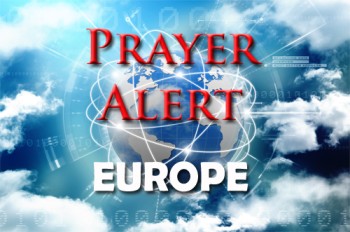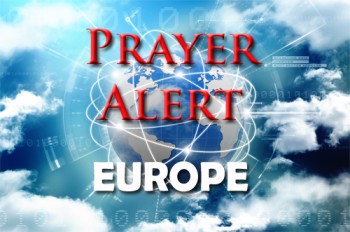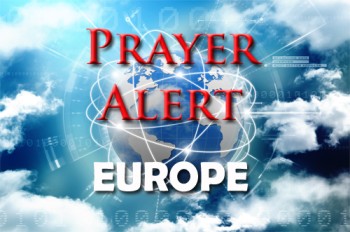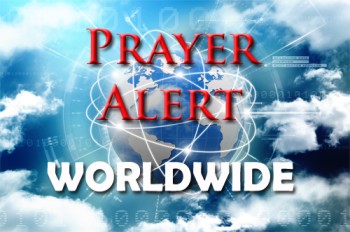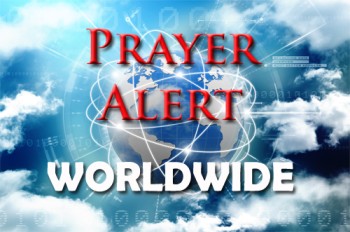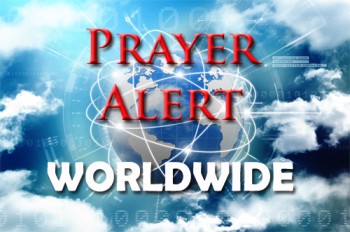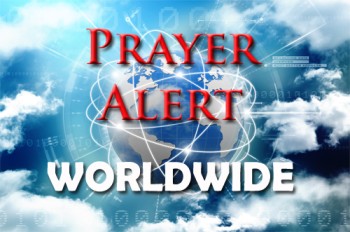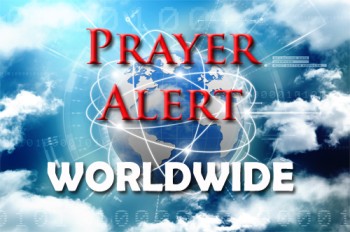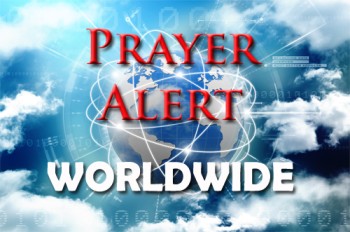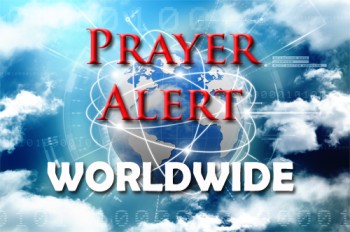
David Fletcher
David Fletcher is Prayer Alert’s Editor.
He is part of a voluntary team who research, proof-read and publish Prayer Alert each week.
If you would like to make a donation towards our running costs, please click here.
Many of Ukraine’s refugees are women and children travelling alone. Fuel shortage means they must walk great distances in winter weather, facing risks of trafficking and violence. Ask God to give them endurance and peace as they seek safety, and to be invisible to traffickers or anyone wishing them harm. Ask God to give the volunteers from local communities strength and perseverance as they work in freezing conditions to help refugees cross borders. Pray for good communication between charities and churches coordinating transfers from the border to shelters, and the forward journey. May these networks remove the risk of refugees accepting transport offers by people traffickers. Pray for God to bless and empower those providing food, supplies, and sim cards. Pray for the IJM teams currently training NGOs in how to support people with complex trauma. Pray for the success of traffic awareness flyers being put in passports and for the authorities to quickly identify signs of trafficking.
The Russian military have admitted that conscripts (drafted against their will) have been sent into Ukraine. Previously Putin had repeatedly denied this. It suggests that his initial planned swift takeover with professional soldiers failed. Conscripts going to Ukraine and coming home in body bags could be politically dangerous for him and have a more immediate impact on Russian public and influential opinion than any sanctions or corporate departures. Many believe the former KGB spymaster is trying to revive Russia's tsarist greatness and restore the Soviet Union might prior to its 1991 break-up. Proverbs 6 says that the Lord hates an evildoer: verse 15 declares, ‘Disaster will overtake him in an instant; he will suddenly be destroyed, without remedy.’
Ukraine’s Christians are openly seeking God to calm and ease their pain, and Psalm 31 has a special meaning in their hearts. Countless Ukrainians are reciting it from their bunkers and other safe locations as they turn to the Lord in praise and adoration. They are finding strength, rest, comfort, and stronger faith in God’s Word. The British and Foreign Bible Society said, ‘Psalm 31 is becoming really significant for the entire nation.’ We also can read it and join in spirit those in shelters who are desperately praying for aggression to end. ‘In you, Lord, I have taken refuge; let me never be put to shame; deliver me in your righteousness. Turn Your ear to me, come quickly to my rescue; be my rock of refuge, a strong fortress to save me. Since You are my rock and my fortress, for the sake of Your name lead and guide me.’
Five days after Shell announced it is ending all joint ventures with the Russian energy company Gazprom, on 6 March it admitted having bought Russian crude oil at a discounted price. It said there was no alternative crude supplies which would reach Europe in time. On March 8th Shell said, ‘We are acutely aware that our decision last week to purchase a cargo of Russian crude oil to be refined into products like petrol and diesel - despite being made with security of supplies at the forefront of our thinking - was not the right one and we are sorry.’ The business says it will immediately stop all spot purchases of Russian crude oil and will shut its service stations, aviation fuel and lubricants operations in Russia. It says its withdrawal from other associations with Russia will be done ‘in a phased manner, aligned with new government guidance’. They said Russian oil profits will be used to help Ukrainians. See
8 March was International Women’s Day. Genesis 1:27 says God created both men and women in His image, yet women disproportionately suffer injustice. Operation World statistics report, ‘Women account for two thirds of the world’s poorest citizens. Nearly two thirds of illiterate people are women, and this proportion has stayed the same for two decades. Globally, women are paid less than men. A cultural preference for male babies has led to 30 million or more deaths of unborn or baby girls, mostly in India and China. This fuels the growth of trafficking of women as brides or sex slaves.’ In 1945 the UN Charter was the first international agreement to affirm the principle of equality between women and men. The UN celebrated its first official International Women's Day during International Women’s Year in 1975. Nearly fifty years later, women still don’t fully participate in political, cultural and economic arenas in many nations and cultures. Globally, this still needs to be addressed.
The war in Ukraine has taken a lot of attention away from Covid, which is unfortunate because the pandemic has now killed almost six million people. There are countries where vaccination rates are still very low; this includes most African countries, where people should not be complacent as the virus still poses a grave risk. Africa’s top public health agency has signed a memorandum of understanding with Pfizer to bring supplies of the pharmaceutical firm’s Paxlovid antiviral pills to the continent. Also Moderna will build its first facility in Rwanda to sell, package, and distribute Johnson & Johnson Covid-19 vaccines.
With fears that the war in Ukraine could push global energy prices even higher, Washington recently met Venezuelan president Nicolás Maduro to discuss conditions for repealing the crippling US sanctions in place against his country. Washington, which broke off relations in 2019 over Maduro’s rigged elections and crackdowns on opposition protests, is reportedly demanding free and fair presidential elections and extensive reforms to the Venezuelan oil sector. Maduro, for his part, wants an end to the sanctions and to be readmitted to the SWIFT global financial platform. Venezuela is a close ally and partner of Russia. Some members of Congress have criticised any effort to rekindle relations, saying that efforts to isolate Putin should not boost other authoritarian leaders. Aside from the political whiplash of resuming oil trade, Venezuela’s oil fields have long suffered from mismanagement. Some industry analysts say it could be slow to increase supply. See
The prospect of Ukraine’s wheat harvests being marooned by war has already sent wheat prices to record highs. If the crops cannot leave the country, global food shortages are likely. Ukraine is one of the world’s great breadbaskets. It is the top producer of sunflower seeds, its black-earth fields yield large oilseed crops, they export 12% of the world’s wheat and 17% of its corn. However the war has done grave damage to Ukraine’s infrastructure. Russian missiles have ruined airports, roads still existing have militarised checkpoints, and few companies want to send trucks across land borders already choked with refugees. Previously Ukraine’s sea ports exported 200,000 tonnes of wheat a day. Now the best it is likely to attain through transloading operations at every one of its western border crossings - Romania, Slovakia, Poland and Hungary - is ‘under 20,000 tonnes a day, altogether’.
China is engaged in a massive nuclear weapons buildup that includes hundreds of new strategic missiles, and Chinese President Xi Jinping is preparing the military to retake Taiwan, USA’s most senior intelligence official told Congress on 8 March. Avril Haines, director of national intelligence, disclosed new information on threats from China and dangers posed by Russia, North Korea and Iran at the annual briefing on threats to US security around the globe. China’s military buildup includes the largest ever nuclear force expansion and arsenal diversification in its history, and there were 39 incursions Into Taiwan's airspace by fighter planes in one day. The Pentagon is warning that China is preparing for a military campaign, so it is sending new sales of advanced-grade military drones to Taiwan.
The congressional committee investigating the attack on Capitol Hill said in a court filing, ‘Evidence and information available to the Committee establishes a good-faith belief that Mr Trump and others may have engaged in criminal and/or fraudulent acts. The select committee also has a good-faith basis for concluding that the President and members of his campaign engaged in criminal conspiracy to defraud the USA.’ If John Eastman is proven to have worked unethically for Mr Trump his legal licence may be suspended, and it increases political pressure on the Attorney General to charge Trump.

